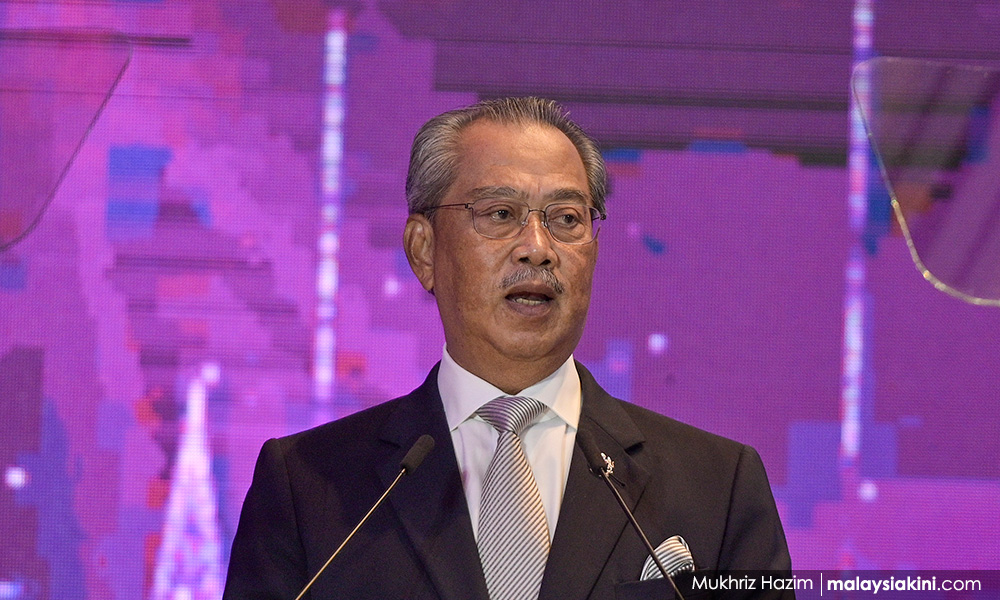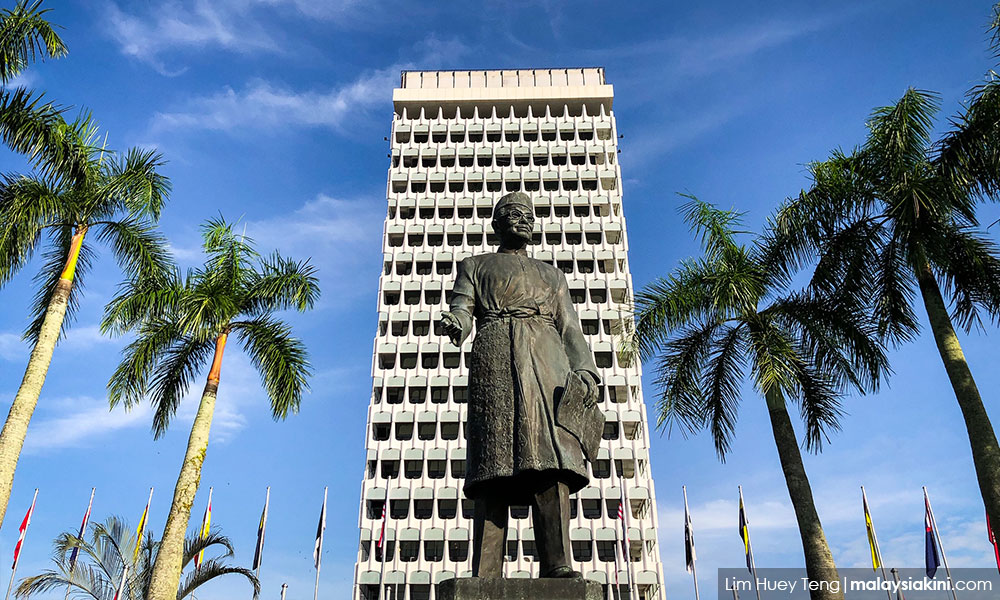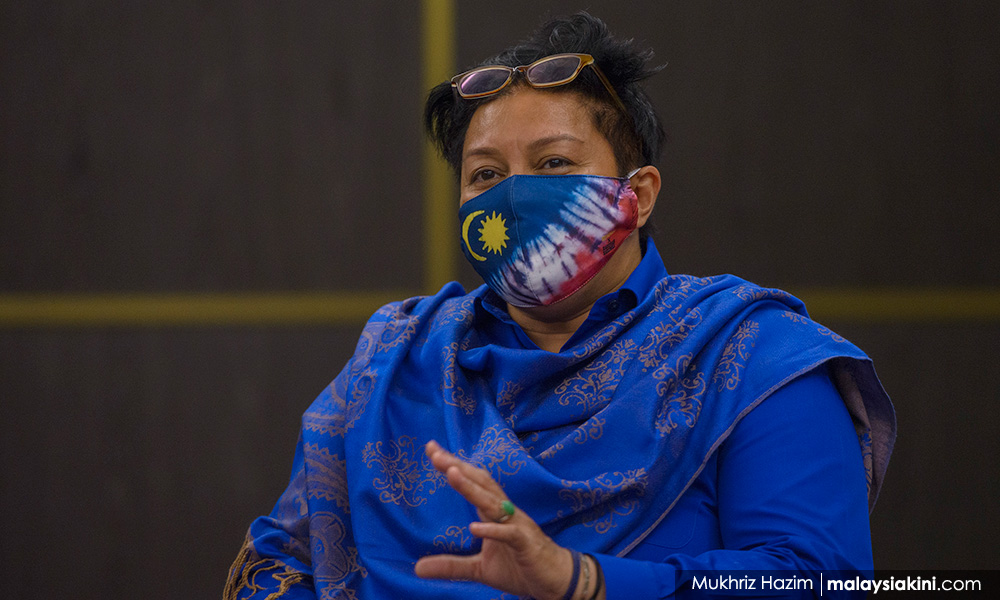Two solutions to end the political deadlock
Should government change and the parliamentary check-and-balance be decoupled?
The ultimate guarantee of check and balance to governments is the power to fire them. All democracies give voters such power with periodical elections.
But governments can also be fired before the end of their terms.
In presidentialism, congress can impeach and dismiss the president. In parliamentarianism, the prime minister may be dismissed on losing the confidence of the House or the budget vote.
Given Prime Minister Muhyiddin Yassin's controversial rise and pathological evasion of parliamentary oversight, it is natural that many Malaysians think of only one substantial way of check and balance - dismissal.
However, it might be time for Malaysians who seriously want good governance and political stability to think about the counterintuitive where job security may need to be offered to the embattled prime minister in exchange for a functioning government.
Muhyiddin is unremovable for now
Why? Muhyiddin is unremovable before the 15th general election. The GE15 may be conveniently prolonged by him as long as the Covid-19 pandemic is raging.
There are two ways to dismiss the prime minister, but both ways seem to have insurmountable roadblocks.
The first way is to form an alternative government, but this needs a positive majority in support of a new prime minister which neither the official opposition Pakatan Harapan nor the unofficial opposition Umno can agree upon.
If PKR president Anwar Ibrahim could assemble a positive majority like former Sabah Chief Minister Musa Aman did for Sabah by lining up the majority of state assemblypersons in his camp, the palace would have to choose between a new prime minister or a new election (if Muhyiddin so requests) as per Article 43(4) of the Federal Constitution.
With only a negative majority against Muhyiddin but no positive majority for his successor, then Muhyiddin can only be fired by having an early election, which can only be requested by him and must be consented to by the king.
Muhyiddin can be forced to request for an early election only if he loses a vote of no-confidence or the budget in November. But the emergency, if prolonged, removes both threats.

The king's choices
Note that nothing in Article 150 of the Federal Constitution that inherently suspends the Parliament when a proclamation of emergency is in force. In fact, Clauses 2B, 5, 6, 6A and 9 prepare for circumstances where parliamentary sitting and emergency rule take place concurrently.
What prevents the Parliament and state legislatures from sitting is Sections 14 and 15 of the Emergency (Essential Powers) Ordinance 2021, which suspend the constitutional provisions relating to the "summoning, proroguing and dissolution" of the legislatures and leave the power to summon, prorogue and dissolve the legislatures to the king and the state ruler/governor.
On Feb 24, 2021, the anniversary of the Harapan government's collapse, the king made clear his position that the Parliament can be convened under the proclamation of emergency, but the date would be decided based on the prime minister's advice.
Some people believe, legally, Section 14 does not necessitate the prime minister's advice. Others believe, politically, the prime minister is too weak to be autonomous on this matter.
This and Article 43(4) leave the king with tough choices.
If the Parliament is reconvened, it is likely that a vote of no-confidence may be passed. Dewan Rakyat Speaker Azhar Azizan Harun's restrictive interpretation of parliamentary rules that a government can indefinitely bury a vote of no confidence at the bottom of government business may be challenged.
If the king does not want an election under another wave of Covid-19 rise, then his choice is to have a new government, which can only be a Harapan-Umno government to have a stable majority.
However, if Umno is dead set against an Anwar-led government, while an early election is ruled out by Covid-19, the collapse of Muhyiddin's government may mean a shopping spree of parliamentarians for prime-ministers wannabees.
Ultimately, if the reconvening of the Parliament will lead to another round of massive political machination which the king does not want, would the prime minister refuse to advise the king on a date to summon Parliament until he can or must face election?
This may drag on till July 2023, when the 14th Parliament must stand dissolved, 27 months away, or even longer.

The colossal costs of parliamentary suspension
For many Malaysians who have grown cynical and frustrated with the political machination, Parliament is irrelevant, and whether it is convened does not make any difference to their livelihood.
Two colossal costs may have been overlooked in such apathy. No matter how bad you think this country is, we can always end up worse, much worse than where we are now.
Financially, the federal and state governments can spend without any legislative oversight. The Emergency (Essential Powers) Ordinance has been amended to allow the prime minister (through the Treasurer) and all the 13 menteri besar/chief ministers to be unconstrained by the government Funding Act 1983 and Treasury Bills (Local) Act 1946.
When the pandemic ends, each and every Malaysian may be burdened with a higher share of the national debt. Are you ready to have a double disaster of economic instability on top of political instability?
Healthwise, the political need for an ongoing pandemic to stay in power may affect the government's best judgement to act on the pandemic, notwithstanding the full efforts of the technocrats and frontliners.
Solution 1: A Muhyiddin government on CSA with Harapan/Umno
How can we get our Parliament back in action so that the constitutional expectation that "the Cabinet shall be collectively responsible to the Parliament" as per Article 43(3) can happen?
This was the powerful reminder posed by Dewan Rakyat deputy speaker Azalina Othman Said in her letter to Attorney-General Idrus Harun on Feb 17, a week before the king's statement.

Only two ways seem possible, but both are extremely difficult.
The first is for Harapan and/or even Umno to strike a 'confidence and supply agreement' (CSA) with Muhyiddin, prolonging his premiership (a fait accompli until Parliament reconvened) for 18-27 months in exchange for the end of the emergency. This can include some fundamental reforms that would level the playing field for the opposition from now till GE15:
• A fixed and pre-announced date for GE15, with UndiI18, Automatic Voter Registration (AVR), extensive absentee voting, digital campaigning and political financing reform implemented.
• Parliamentary reform, including recognition of a shadow cabinet, setting up of parliamentary select committees (PSCs) to shadow every ministry and real avenue for private member's bills so that opposition lawmakers and government backbenchers can shape national policies and legislation.
• Equitable Constituency Development Fund (CDF) so that opposition lawmakers do not lose out by default in constituency service.
• Establishment of a Public Prosecution Office independent from the Attorney-General's Chambers to end selective prosecution and witch hunts.
• Decentralisation, recall election mechanism and other measures that reduce party-hopping.
This would allow Muhyiddin some political peace to concentrate on the pandemic and economy and leave a legacy as the eighth prime minister.
With or without these reforms, he will not continue as prime minister after GE15. Hence, he has nothing to lose. The deal may not benefit the rest of Bersatu, but why should Muhyiddin put his six-year-old party above his own legacy?
Instead of betting that luck will be with them in the current winner-takes-all game, PAS and GPS (Gabungan Parti Sarawak) should consider buying a 'political insurance'. With strong regional bases, a level playing field with decentralised power will only benefit them in the long run.
Solution 2: A Harapan-Umno fixed-term reform government
If Muhyiddin is adamant about prolonging the emergency, then the second solution is for Harapan and Umno to form a new government but confine it to the same 18-to-27-month pact.
Umno does not want to accept an Anwar-led government for the fear that its second-fiddler position will continue after GE15. A 'fixed-term reform pact' will absolve Umno of such danger as it can still contest against Harapan in GE15 and may emerge as the largest party.
The suspension of Parliament must end as soon as possible if Malaysia wants a quicker victory against Covid-19 and restoration of political and economic stability.
Both the political elites and the public need to consider their choices rationally and remove pipe-dreams from the menu. The choices that please us emotionally often may not serve our best interests and vice versa. - Mkini
WONG CHIN HUAT is an Essex-trained political scientist working on political institutions and group conflicts. Mindful of humans' self-interest motivation while pursuing a better world, he is a principled opportunist.
The views expressed here are those of the author/contributor and do not necessarily represent the views of MMKtT.
✍ Credit given to the original owner of this post : ☕ Malaysians Must Know the TRUTH
🌐 Hit This Link To Find Out More On Their Articles...🏄🏻♀️ Enjoy Surfing!




















Post a Comment